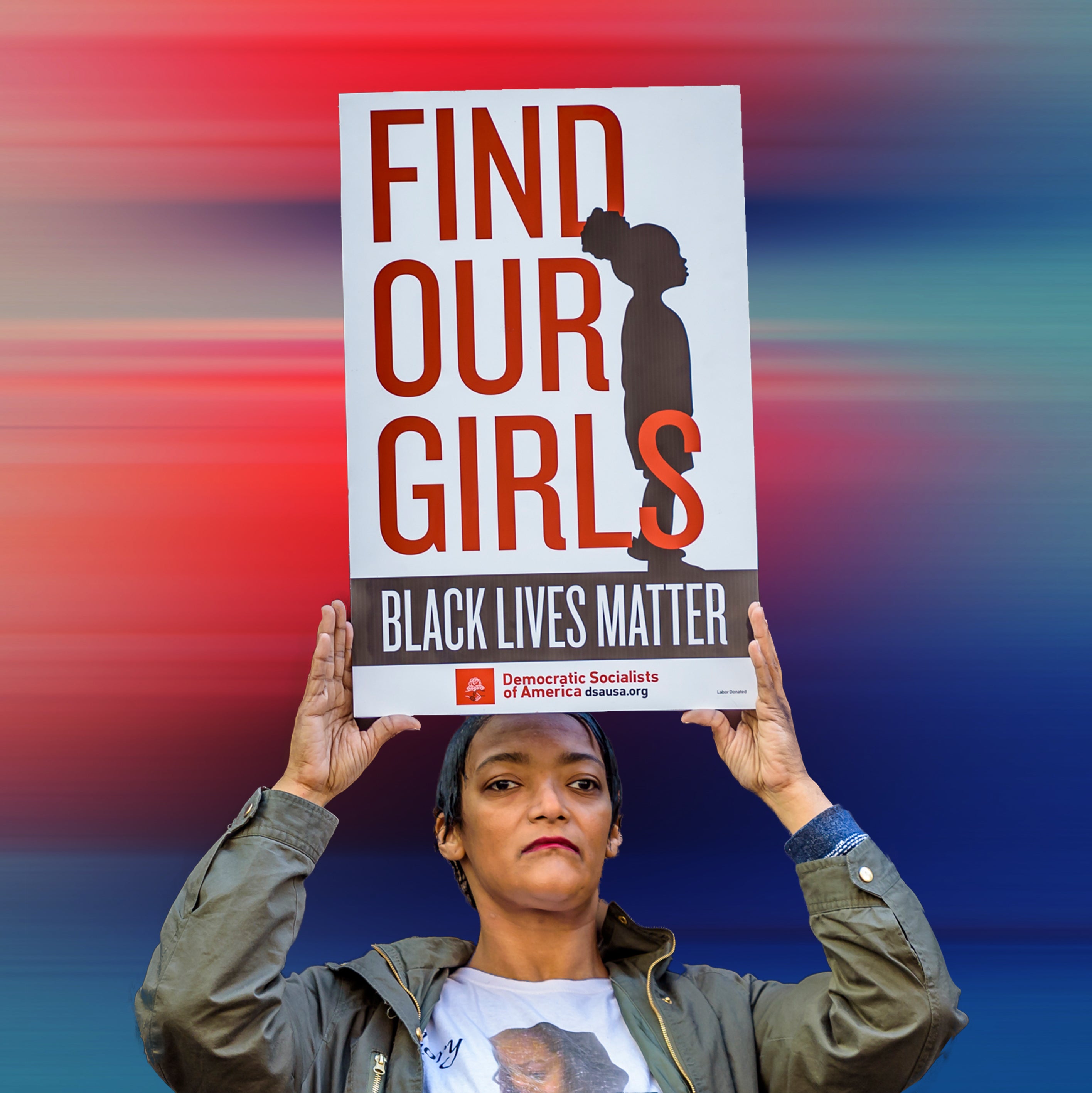
Nearly one month after national outcry that very little attention was paid to missing girls and boys of color in the Washington D.C.-area, legislators, policymakers and a panel of community-based leaders and experts convened on Capitol Hill Wednesday to turn their attention to the national crisis that disproportionately affects Black women and children
Congressional Caucus on Black Women and Girls (CCBWG) co-chairs Rep. Yvette Clarke (NY-09), Rep. Bonnie Watson Coleman (D-NJ) and Rep. Robin Kelly (IL-02) administered a panel discussion to outline solutions at the local and national level — an effort to ensure Black women and girls are returned home safely, while protecting the vulnerable from kidnappings, sex trafficking or erasure when they are labeled “runaways.”
Here are five ways you can help
If you see something, say something: Be vigilant about your surroundings and trust your gut instincts when you see women who seem out of place and in distress.
“If I see an older man with a younger girl who seems submissive, and something doesn’t seem right, it raises a red flag to me,” said panelist Derrica Wilson, president of Black & Missing Foundation. “I make sure that with today’s technology, I take pictures of suspicious individuals and capture license plate tags.”
In Chicago, Kisha Roberts — a probation officer with the Circuit Court of Cook County, Juvenile Justice Division — noted that human trafficking often occurs at bus stops. If you see the same young woman at the same bus stop at varying hours of the day, that could be a sign that something is off.
“It’s not a normal occurrence for a young lady to be in the same place all day long,” said Roberts.
Local transit authorities are trained to help respond to suspected victims of human trafficking and kidnapping. If a woman or girl on your bus, plane or train appears distressed or held against her will, simple questions like, “Are you okay?” or “Do you have somewhere to go?” can help you gauge if the woman needs help. If you feel someone is in a compromising situation — should you choose to engage or not — report it to an authority.
You can also call the National Human Trafficking Hotline at 1-888-373-7888.
Be cautious of the information you share on social media: Think before you tag that location with your family’s photos. Be cautious of the images you’re uploading and the associated privacy settings. If you have children, monitor the conversations they have on social media and who they’re engaging with; phones should not be allowed in children’s rooms unattended overnight. Predators seek vulnerability and prey on children in need of attention and comfort.
“So many traffickers get in touch with girls through their inboxes on social media. Just because you’re not seeing anything on their (public) posts doesn’t mean they aren’t having private conversations. You have to dig deeper into what they’re into,” said Roberts.
Enlist community-based organizations to help: If there are missing persons in your area, ask faith-based organizations to help pass out flyers to the congregation. Work with community servicing organizations to offer preventive classes and traumatic counseling services for impacted groups of people.
“[Black & Missing Foundation] partnered with a church recently to teach children free self defense tactics…in the event that someone tries to grab them,” said Wilson. “I see children, men and women glued to their phones and not paying attention to their surroundings,” she further explains, showcasing the need for courses that teach general awareness and emergency preparedness skills.
Hold local media accountable: Just shy of one month ago, the nation was largely unaware of the stark number of missing Black people. The faces of the missing are largely White girls and women, while missing Black people are often categorized as runaways. If there are missing individuals in your town or city, call your local newspaper and broadcast stations daily until they pursue a story. Use social media as an additional tactic to reach out to reporters.
Donate dollars and time to organizations doing the work every day: There are many great local and national nonprofit organizations donating their time and effort to preventing Black women and girls from going missing. Participate in a local fundraiser or awareness drive to help support the people doing the work in the community every day.
If you’re looking for a place to start, The Black & Missing Foundation will host Hope Without Boundaries, a 5K run/walk on Saturday, June 3, 2017 at the National Harbor in Maryland.
